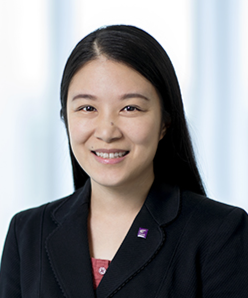Speaker: Professor Lian Weihong(The Center for Economic Research, Shandong University)
Host: Assistant Professor Yang Cheng(Li Anmin Institute of Economics, Liaoning University)
Guest introduction: Assistant Professor He Zhenyu(Li Anmin Institute of Economics, Liaoning University)
Time: May 22, 2024 (Wednesday) 10:00-11:30 (Beijing time)
Location: Conference Room, 1st Floor, Wuzhou Park, Chongshan Campus, Liaoning University
Online Venue: Tencent Meeting: 573-371-051
Language: Chinese/English
Abstract:Whether helping or reciprocating towards others, people occasionally take actions for which the underlying cost they incur exceeds the benefit actually obtained by the recipient. The degree to which such non-cost effective actions are appreciated by recipients, as compared to cost effective actions in which a recipient receives a relatively larger benefit at a lower cost, depends on whether helping actions are evaluated primarily based on the costs incurred or the benefits eventually obtained. We extend Falk and Fischbacher’s (2006) theory of reciprocity by incorporating both the costs and the consequences of a helping action in the evaluation of an individual’s kindness. We then conduct a laboratory experiment on an asymmetric version of the gift-exchange game to test the model, varying senders’ and receivers’ effectiveness in benefiting their counterparts at a single unit of their own cost. Our reduced form and structural estimation results support the findings that: (i) No matter whether during an initial interaction or when reciprocating others’ kindness, the costs incurred tend to be more highly valued by recipients as compared to the realized benefits obtained, which we refer to as “sincerity appreciating”; (ii) Receivers choose to incur lower costs when reciprocating towards a sender who knew about the possibility of receiving a favor in return, as compared to the situation that the opportunity to reciprocate arises as a surprise. Together, these findings suggest that the intentions behind helping weigh more heavily than merely the benefits obtained, in terms of a recipient’s valuation of the favor and desire to reciprocate.
Introduction to the speaker:

Jaimie Wei-Hung Lien is a professor and doctoral supervisor at the Graduate School of Economics, Shandong University, and a Distinguished Professor of Shandong University.She received her bachelor's degree from Wesleyan Women's College in the U.S., and her master's and doctoral degrees from the University of California, San Diego.She has served as guest editor and member of editorial boards of several international academic journals, including North American Journal of Economics and Finance, reviewer for government research funding agencies in mainland China, Hong Kong, Taiwan, and Singapore, and external reviewer for faculty promotion in several universities. She has served as an anonymous reviewer for 31 journals and has been awarded as an outstanding reviewer for several times.Her research areas include behavioral economics, experimental economics, and applied microeconomics, and her research topics cover important behavioral phenomena such as cooperative reciprocity, reference dependence, present bias, and representativeness bias. She has chaired the National Natural Science Foundation of China, the Ministry of Education, and the Hong Kong Research Grants Council.Her papers have been published in Nature Communications, PNAS, American Economic Review (Papers and Proceedings), Games and Economic Behavior, and other international journals. She was awarded the "China Information Economics 2016 Youth Innovation Award", "China Information Economics 2018 Youth Innovation Award", and "China Information Economics 2011-2015 Theory Contribution Award".
